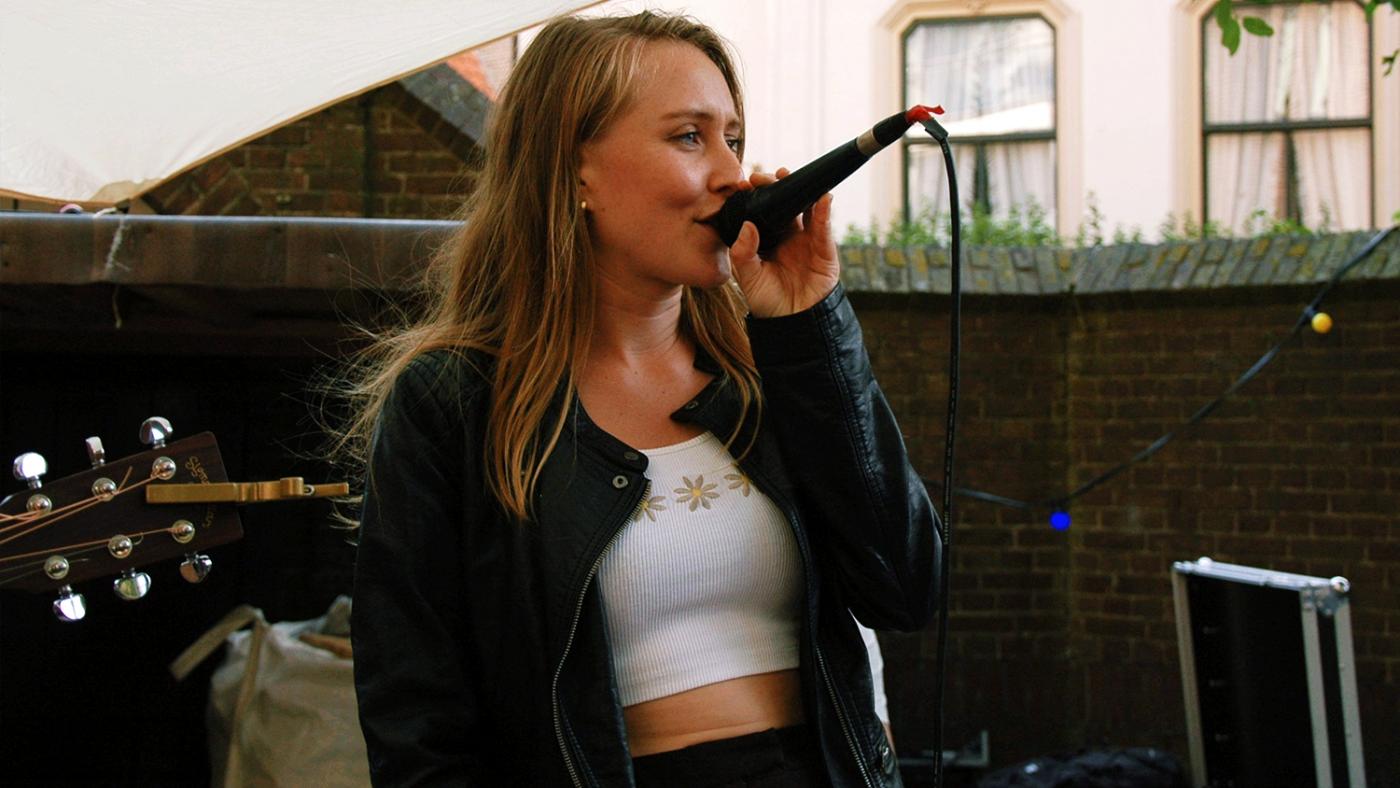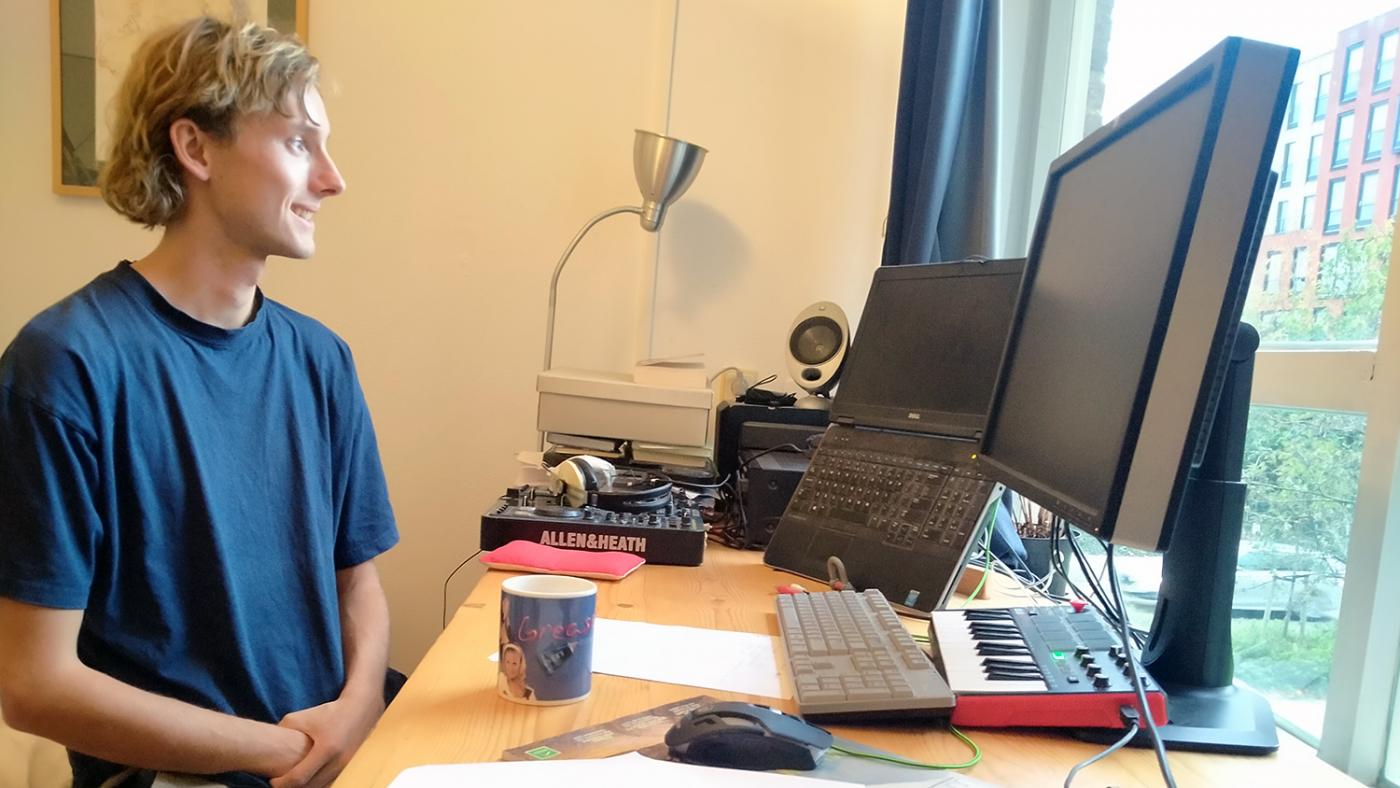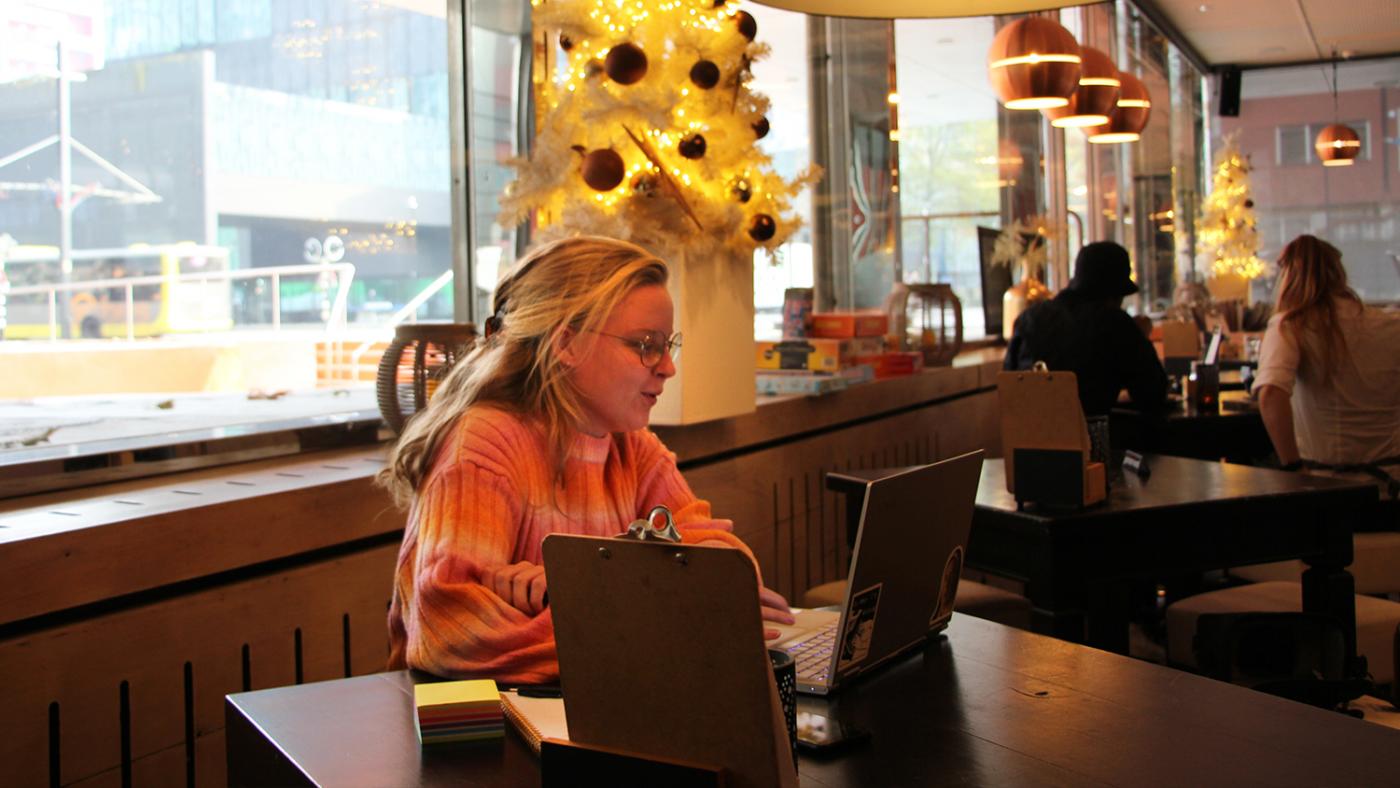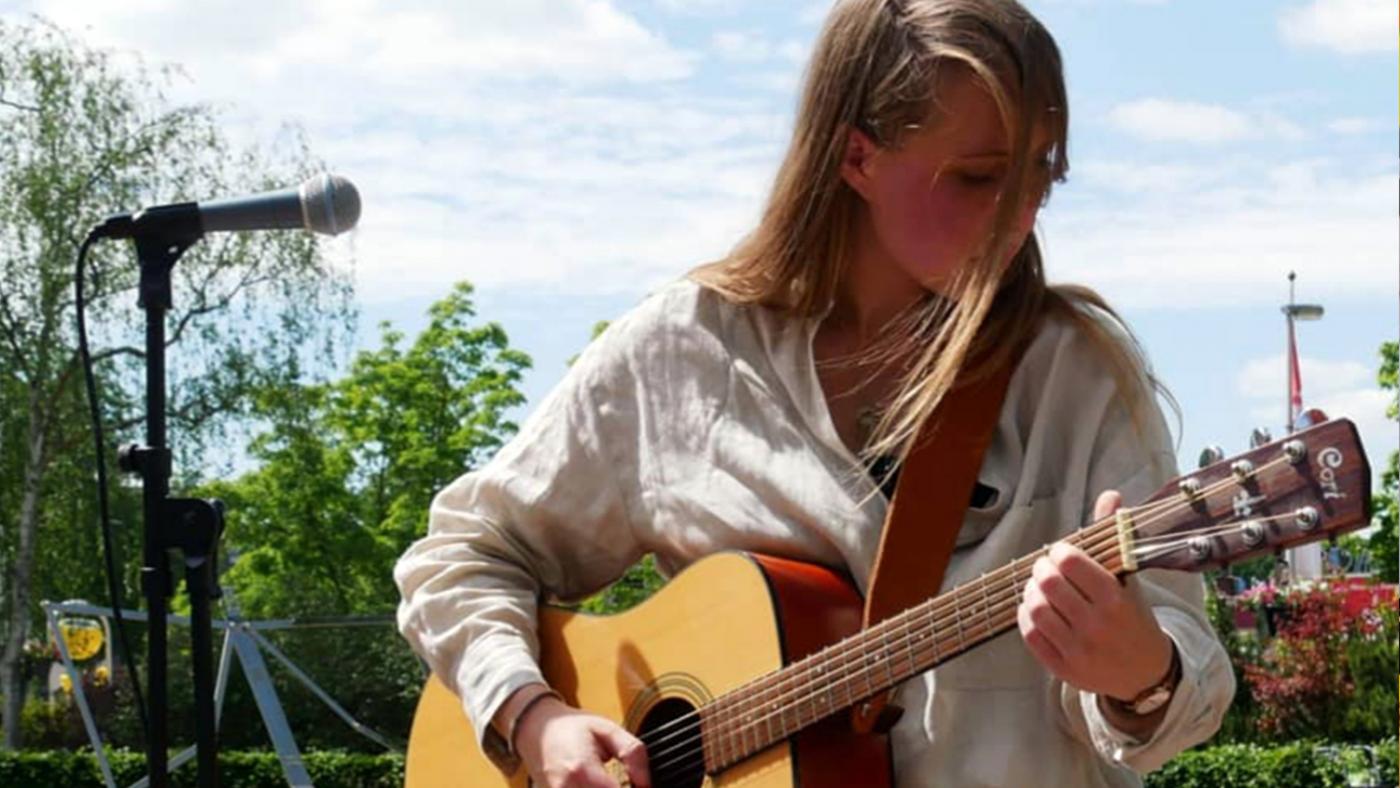What about your ideals?
To work full-time or not to work full-time, that is the question

It's all over the Dutch newspapers: burnouts are becoming more common among millennials and many twentysomethings aren't interested in working full-time, even though a significant number of companies are desperate for staff. DUB asked three new graduates currently looking for a job how they picture their working life. Despite skyrocketing inflation and rising prices of housing and groceries, money is far from being a priority for them. Working with something related to their ideals and having enough time off are much more important.

UU graduate Pier wants to work three days a week
‘I want to be able to spend time on the things that enthuse me'
“I don’t really need loads of money,” states Pier, who’s just finished a Master's in Maths at UU and thinks that time off is more important than money. “I can live frugally just fine, so a part-time wage is enough. The only issue is that I can't buy a house but I'm not worried about that yet.”
How many days a week would you like to work?
“Three because I spend a lot of time making electronic music. I don’t have any musical skills whatsoever but you can also approach music from a technical perspective, which is something I'm good at. Thanks to my programming skills, I was able to write a little programme that functions as a digital tone converter. I have so many ideas about music production and if I were to start working full-time, I wouldn’t be able to develop that part of me.”
Do you think you're going to succeed in finding a part-time job?
“I think my chances are slim. The offer is pretty disappointing. I know that working full-time is still the standard but I was expecting at least ten percent of the vacancies to be part-time and that's totally not the case. I read the book Utopia for Realists, by Rutger Bregman, in which he explains that in the twenties, economists predicted that nobody would have jobs anymore by 2020. That prediction didn't come true, of course, but ever since I read that book, I started to wonder why I should work five days a week.”
Have you been turned down at job interviews for not wanting to work full-time?
“Yeah, that’s always the reason. I’ve applied for six vacancies since graduating. Companies initially tell you that working part-time is not an issue but then they think it through and conclude it's inconvenient for them. One of those six companies was really eager to hire me but there was this other candidate who was willing to work five days a week so they chose him. Right now, I’m waiting for an answer from a company where I can work part-time in the long run, as long as I go through a full-time introductory process which lasts a couple of months.”
Do you consider working full-time in the future?
“Sure I would. It’s just that, right now, I’m very enthusiastic about music and I want to spend time on that. I’m just too passionate about these other things that have nothing to do with work and, as long as I stay passionate about these things, I'll want the freedom to spend my time on them."
What are you going to do now?
“It's harder to work part-time from the get-go than working somewhere for a while and then scaling down. Employers always say the same thing to me: 'If you just start full-time, you can work fewer days after two years. Then you'll be settled in and comfortable.' I see where they come from: the first year costs employers almost more than it earns them, so it probably feels like a risk to hire someone part-time. That's why I would agree to a full-time introductory programme for a few months. I mean, I just want a job."

UU graduate Winnie doesn't want to go abroad
‘I'm surprised to see people who don't want to work full-time’
Winnie completed her Master's in Toxicology last August but, so far, she hasn’t succeeded in finding a job. To have an income, she’s currently working as a sales manager at the restaurant The Basket, at the Utrecht Science Park. She also writes articles for DUB as an occasional freelance journalist.
How come you still haven't found a job in your own field?
“There’s hardly any offer. I think I see a vacancy that’s relevant for me about once a month but companies have such huge demands, especially when it comes to working experience. As a recent graduate, I'm not even considered."
But everyone says there is a labour shortage in the Netherlands and jobs are up for grabs for young people.
"Yes but they're talking about hospitality jobs and other positions for which you don’t need a university degree. Well, not the degree I've got anyway. I actually only have two options left: I can either get an office job as a policy officer or I can work at a laboratory. An office job doesn’t feel right for me right now. Then I'd really become an 'office girl.’ I guess I might want that in the future, but I think I'd go mad if I had to do that for 20 years. Working in a lab sounds like fun because you do a lot of different things and you’re walking around all day. It keeps you awake and it's better for your body than an office job. I think that’s much more interesting because you’re working with science.”
What kind of research would you like to engage in?
“Preferably a PhD or something else in the academic world. Not for a commercial company. If you do something academic in my field — if you’re on the institutional side, therefore — you prove that something is toxic to either prevent or solve a problem. But when you perform research for a company, you're actually hoping that something is not toxic, so you don't have to solve anything. That is not my cup of tea."
So there are no companies pursuing research you would like to work on?
“Toxicologists end up working for two types of companies: medical companies or companies that make materials. For a while, the majority of PhDs available were related to Covid-19 research, which makes sense because it’s a huge problem. The thing is, I don’t want to do anything medical. In medical research, everything is always aimed at humans, as if we only had ourselves to take care of, but I actually think we should be focusing more on nature. I want to pay attention to all the toxins that we pump into the ground and the air, leading to soil pollution, for example."
And there are no vacancies in that field?
“Barely, because it really is a niche. I think there were only 17 other students in my Master's, which is only offered by one university in the Netherlands. That’s why it’s a very small field and there are very few PhD positions. Besides, the European Union hasn’t got much budget for research in my field and it seems as though Dutch universities prefer researchers from abroad because they value international knowledge sharing. For example, there’s a vacancy online from Wageningen University that suits me perfectly but you cannot have lived in the Netherlands for more than one year in the past five years. I understand the importance of international knowledge sharing but that makes things difficult for someone like me. I could get a PhD very easily if I went abroad but I want to stay in the Netherlands."
How many hours a week do you dedicate to your job search?
“It varies from one to ten hours a week. Right now, I just got through the first round of a recruitment process, so I let it go a little bit and don't do much else. Ten hours is the maximum, though, because by then I've exhausted the entire supply of job opportunities in my field."
What is the hardest part of looking for a job?
“The fact that my classmates have become my competitors because of the scarce offer. I used to share all interesting vacancies and links with them but now I barely do that anymore as I don’t want my dream job to be snatched up by someone else, leaving me to search for yet another year. Because of the low offer, it’s every person for themselves now, even though your network is supposed to be helpful when you’re trying to find something that suits you. I think that's such a shame.”
Were you aware that it was going to be this hard to find a job back when you were a Master's student?
“I did, but I’m just really passionate about toxins and I think it’s cool to contribute to research. That’s why it always surprises me when people don’t want to work full-time. I do because I hope I'll love my job, I hope to find something I will happily spend 40 hours a week on. But that also means I’m very picky.”

Lenette want to have a job and time for herself
‘Most of all, I'm afraid of ending up in a job I don't like’
Lenette has a Master's degree in Neuropsychology. She graduated in 2021. Now, she’s looking for a job with two requirements in the back of her mind: it must be part-time and it must be something "forensic". Forensic psychologists are involved in the treatment of both offenders and victims of crimes.
Is it hard to find a job in the field of Psychology?
“No, actually it’s not. People always say there are too many psychologists in the Netherlands, but right now it actually looks like there is a shortage. Perhaps because of society's deteriorating mental health? I see many vacancies, mostly in paediatric and youth psychiatry. Jobs in forensic psychology, however, aren’t nearly as common. I’m not worried about not finding a job — most of all, I’m afraid of ending up in a job I don’t like. That surely stresses me out.”
Do vacancies in your desired field have many requirements?
“Yes, but it’s mostly about which treatments you can do, not necessarily about how long you’ve been working. I have little experience in treating clients so, when an employer hires me, they’ll have to offer me a course as well. I’m afraid that's why I'm more likely to be rejected for part-time work.”
So there are part-time vacancies in your field?
“Very few. Most vacancies are full-time and, in mental health care, full-time always means 36 hours a week instead of 40. In my ideal scenario, I would work 28 hours a week. Actually, I’d rather work 24 hours but then I wouldn’t have enough income. It would be enough to get by right now because I’m still living in an SSH building but, in the future, I’ll probably have to pay much more rent. Besides, I want to be able to pay off my student loans.”
Why do you want to work part-time?
“I’m singing in a band. We mostly do covers but I would actually like to have my own studio and take songwriting lessons. I want to spend at least one full day a week on that, to see if I can actually make something of it. Right now, I record stuff sometimes but, due to lack of time, nothing really comes of it. Even if this ultimately leads nowhere, I just want to know whether it could become something if I were to really invest some time in it. If I don't try, I’ll spend the rest of my life wondering.
“Financially, working full-time doesn’t make a world of difference either. I’ve actually calculated the difference between working three and four days and it is only 300 euros net a month because you pay more taxes. I don’t think that’s a lot for just one extra day. What I do have a problem with is the limited number of vacation days. I want to go skiing and do other fun stuff every now and then. Otherwise, I’ll wonder 'what am I actually doing this for?'”
What is your main reason for wanting to work?
"To have an income. At the moment I'm living off the money I earn as a research assistant and the stocks I bought — partly with my student loan. I would like to live a little more luxuriously than a student in the future. It would be nice to buy more expensive music programmes, for example. But I don't need a house for the time being. I don't mind renting."
Would you have a job if you received a basic income from the government?
"Yeah, I would. I still wouldn't go into music full-time because I do want to be intellectually challenged. But I definitely wouldn't go for a full-time job. Having a balance between work, exercise, rest, and creativity is crucial to me. I would really become a less fun person if I worked full-time. I realised that during my internship, when I'd be having dinner with friends whilst keeping an eye on the clock all the time because I had to go to bed to wake up early the next day. That was so stressful. I was always tired and didn't want to do fun things anymore."